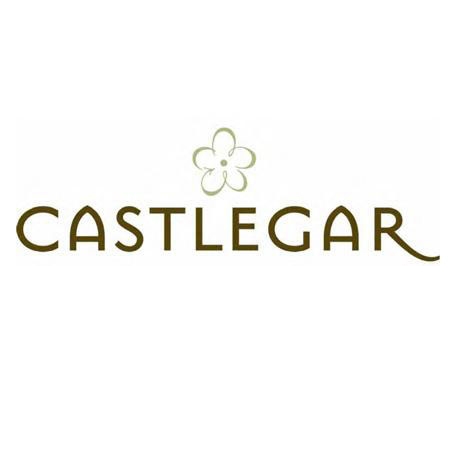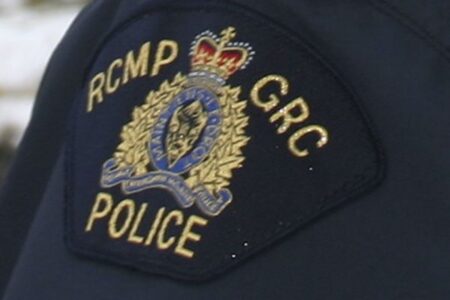City garbage strategy explained
In the spring of 2016, the City of Castlegar will roll out changes to curbside garbage and recycling collection services. The new Solid Waste and Recycling Program has been carefully designed to help meet the City’s waste reduction goals and to reflect a commitment to environmental and economic sustainability.
- Stop by Castlegar City Hall at 460 Columbia Avenue or call 250-365-7227
- Visit the City of Castlegars website at www.castlegar.ca
- Download the MyWaste mobile app for up to date guides and schedules http://castlegar.ca/services_civicworks_my-waste_app.php
- To learn more about recycling in BC, visit www.recyclinginbc.ca
- To learn where to recycle lightbulbs, batteries, etc. visit www.rcbc.ca or http://castlegar.ca/services_civicworks_my-waste_app.php
Garbage Collection:
- Biweekly Curbside Collection (residential garbage will be collected every other week)
- Bear Resistant Garbage Carts (residents will be provided with a standard 242 litre wheeled cart fitted with bear resistant locks- a 121 litre can will be available for those needing a smaller can and an additional 242 litre will be available for those needing additional collection )
- Automated collection (carts will be emptied by a mechanical arm on the collection truck instead of being manually lifted by the driver)
Recycling Collection:
- Biweekly Curbside Collection (no change)
- Dual Stream Curbside Collection (residents will sort paper and cardboard recyclables from plastic and tin containers)
- Standard Blue Boxes (residents will be provided with two 82 litre blue boxes- additional resident-supplied blue boxes may be used if necessary)
- Central Glass Drop-off (curbside glass collection will be replaced with a centralized drop off depot, location still to be finalized)
Yard Waste (NO CHANGE):
- Twice-annual curbside collection (Spring and Fall)
- Yard Waste Compost Facility (behind the Castlegar Community Complex)
Organic Waste/ Kitchen Scrap Composting:
- Backyard Composting (until curbside organics collection can be implemented, the City will encourage backyard composting through an educational campaign and subsidized backyard composters)
Solid Waste and Recycling Program Changes: FAQ
GENERAL INFORMATION
What is waste diversion?
Waste diversion means redirecting waste away from the landfill through recycling, reusing and composting. A waste diversion rate is the percentage of total municipal waste that is diverted through these means.
I like the current garbage and recycling program- why change?
Waste diversion prolongs landfill life, conserves resources and saves tax dollars. Castlegar currently has a waste diversion rate of 27% meaning that almost three-quarters of municipal waste still ends up at the landfill. In order to reach the City of Castlegar’s short term goal of 50% waste diversion by 2020, we must consider policy and legislation that encourages waste diversion and provides convenient alternatives to disposal like curbside recycling collection and organics composting.
How does biweekly garbage collection reduce waste? Reducing collection frequency has been shown to be one of the most effective strategies for increasing municipal waste diversion rates by encouraging residents to rethink their waste habits. This strategy has been shown to increase curbside recycling participation rates (currently 45% in Castlegar) and reduce the amount of garbage ending up in the landfill.
How did the City decide on these changes? Was the public consulted?
Over the last year and a half, the City has been researching potential changes to solid waste and recycling services. Over a dozen different service combinations were considered based on the City’s waste reduction and sustainability goals, provincial best practices, financial implications and public feedback.
A public survey regarding potential changes was available in the Castlegar News and online from Jan-Feb 2015 to help guide the planning process. Once a Proposed Program was reached, a Public Forum was held on November 3, 2015. After the forum, a feedback form was available online and at City Hall for residents to voice concerns and ideas.
GARBAGE CHANGES
The 242 litre cart is too big for my family- Can I get a smaller cart?
Yes, a 121 liter bear resistant cart will also be available.
The 242 litre cart is too small for my family- Can I purchase a second cart?
Yes, a second 242 liter cart will be available for homes needing more collection capacity. There will be an additional cost for the second can additional tipping fees. It is recommended residences try several collection cycles with one can before committing to the purchase of a second can.
Will these carts really keep a bear out?
Yes! In order to be certified as “bear-resistant”, carts have to pass testing with captive grizzly and black bears. They have been designed with metal reinforcements and sturdy locks that make it extremely difficult if not impossible for bears to gain access to the garbage inside. The carabiner-type locks cannot be manipulated by bear claws.
Won’t bears still be attracted to the smell?
While they may be attracted to the odour of the cart, bears will very quickly move along when they realize they cannot access food from inside the cart. By preventing access to garbage (food rewards), we can avoid the cycle of food conditioning that leads to human-bear conflict. It is still recommended that the carts be stored securely inside a locked building, but if a cart is forgotten outside, the locks will ensure bears do not access an easy meal in your yard.
Who unlocks the carts on garbage day?
Residents will be responsible for unlocking their garbage carts on collection day. Simply unhook the locks when you place the cart on the curb so that it is ready for collection.
How will the new carts be paid for?
These carts will be provided to residents free of charge by the City of Castlegar. The carts will be initially purchased with existing Gas Tax Reserves.
What happens if my cart is damaged or needs replacing? The carts have an extended warranty and Waste Management will take care of any warranty repairs. Households are responsible for cart replacement costs for carts damaged beyond their repair warranty.
If carts are lost or stolen, staff will attempt to recover them through their serial number. If the carts cannot be recovered, households are responsible for cart replacement costs.
What am I supposed to do with 2 weeks’ worth of diapers?
To reduce diaper-related odours, empty diaper contents into the toilet before rolling the diaper up tightly and disposing in the cart. Keeping dirty diapers in a separate, leak-free plastic bag can help minimize odours. Cloth diapers are a great, waste free alternative.
What can I do to minimize odours from 2 week old garbage?
A great way to reduce garbage odours in the summer months is to freeze particularly smelly items such as meat scraps, bones and grease in a leak-free plastic bag until collection day.
Will my Utility Fees change?
Yes, as a result of the changes to the program, the garbage portion of your utility bill will be dropped from $122 to $110 per year for 2016.
RECYCLING CHANGES
Why do I need to sort my recyclables?
Multi-Material BC (MMBC) offers a higher financial incentive to communities that sort recyclables at the curb. The current incentive for single-stream recycling (all in one bag) is expected to decrease in the near future. In addition, the use of single stream blue bags generates additional waste.
Why is curbside glass collection being eliminated?
MMBC requires that glass be collected separately from other recyclables. Since the launch of the MMBC Printed Paper and Packaging Program, the City has offered monthly curbside glass collection, but the service has proven too costly for the relatively small amount of glass being collected. A central drop off location will allow residents to continue to recycle glass packaging.
What if the blue boxes aren’t big enough for my recycling?
The two blue boxes provided by the City should be of sufficient size for most households. If required, additional recycling can be set out in resident-supplied blue boxes.
ORGANICS
Will we ever see curbside organics collection in Castlegar?
The City is working with the Regional District to create a regional organics composting site and program. Once a organics composting facility is online, the City will be reviewing the ability to provide curbside organics collection.
Won’t backyard composting just lead to more bear issues?
Backyard composts don’t have to be a bear attractant. As long as the compost is well managed and never includes meat, fish, bones, dairy or cooked food, odours should be minimal. In a typical year, composts are responsible for less than 1% of reported human-bear conflict in Castlegar. For more tips, visit https://wildsafebc.com/black-bear/


























Comments